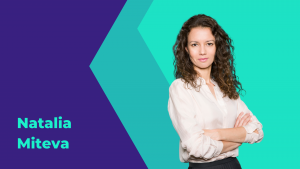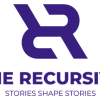How will the future teachers look like and what will their role be in the learning process?
In the last year and a half learning in the classroom went through a massive change that reflects not only the effects of the COVID-19 pandemic but the profound transformation that education is going through. The pandemic only accelerated a paradigm shift that has been happening for a while. It is driven not only by technology itself but also by the fact that the way children focus and learn is fundamentally different than just 10 years ago.
Educational systems and teachers all around the world must adapt and embrace digitization and the new expectations of the role of the teacher in the learning process.
To build on our #edtech series, The Recursive asked five edtech founders that are building solutions to digitize the classroom and help children learn their own way to paint us a picture of the future teacher. What kind of mindset should they nurture to reflect and embrace the changes? What kind of skill set will they need to leverage the fast pace of digitization both in the educational system and the future job market? What tools will they need to organize their everyday job?
Here are their top 7 insights into the future teachers’ playbook:
- Embrace a growth mindset
- Be able to adapt fast to emerging technologies and teaching strategies
- Thrive in collaborative and dynamic environments
- Be student-centric, not system-centric.
- Be a mentor who guides students through practical skills
- Be a coach who inspires students to reach their full potential
- Be able to design and carry out meaningful and deeply engaging learning experiences
“The teacher should always be up to date with how the world changes” – Alex Malureanu, Co-founder of Ascendia

Ascendia is an e-learning company, started in Romania, but is currently present in 9 countries. It creates online teaching content. Its flagship product Livresq is a lesson editor tool that helps publishing companies create digital school textbooks. It is used by 17,500 teachers and 5,500 educational institutions.
Alex Malureanu: We are in an age of acceleration and transformation and this comes with a lot of challenges for those active in the field of Education. Now, the elephant in the room. Will people lose their teaching jobs? Yes, but on a positive note, many opportunities in the field will create new jobs here.
To be able to prepare the education field to handle the future we need systems that take into account new advances as they show up. So one trait that should be mandatory for the teacher of the future is the power to adapt fast to emerging technologies and teaching strategies. This means that the teacher will need to always be up to date on both how his educational field is changing, but also on how the world changes.
Next, he will need to work extremely well in a collaborative and dynamic type of environment because education won’t happen only between the walls of a classroom. That will be a given.
Focusing on the teacher on an individual level is fine, but for him to be able to be truly successful, he will need the support of the system. So, the Ministry of Education will need to create the supportive backbone for this massive change. This step will be very hard.
A big change that many are afraid to speak of is that the teacher of the future will need to be paid a premium (not a decent) salary. We need a performance in this field and you cannot have it without competition. Pay a premium, bring only the best people in the field, and thus the future generations will have a good chance of becoming successful. Also, be sure to clean the act up by having the courage to drop the ones that are toxic and unfit to teach.
“Humans will always need humans for the teaching-learning process” – Arta Zaimi, founder of Labbox Education

Labbox Education is a Kosovo-based edtech startup. It helps children learn science, electronics, and computer engineering in fun and interactive ways that encourage thinking and finding new and innovative solutions for various challenges.
Arta Zaimi: As the global changes are predominantly being fueled by technological innovations, the need for schools and teachers to adapt cannot be avoided.
I often hear debates that technology will replace teachers or that teachers’ jobs are threatened by technology. It is my profound belief that humans will always need humans for the teaching-learning process. It is the job of every teacher and school to help kids fundamentally understand the world around them, which in today’s time cannot be without the involvement of technology.
I believe that the true teachers of the 21st century will leverage technology to enhance the effectiveness of their learning environments. They will foster higher engagement with relevant, real-world content, that will help students gain the skills required for the ever-changing job force of our time.
By leveraging technology, teachers of the future will create multiple touch points throughout the learning process that extend beyond the classroom itself and increase the engagement of students in the learning process, as well as shift the focus from content teaching to skills development.
The vision for every school that leverages digitalization should aim to achieve an open education system and a lifelong learning education society where anyone, with no limitation of time or space, can access information through state of the art technology, as well as offer quality education, led by quality teachers to all students regardless of their location, socioeconomic background or disability status.
This means that teachers and the whole school staff should embrace wholeheartedly the digitization process and become student-centric. To do this, the way schools are organized today, should change fundamentally.
“The teacher of the future will be much more in the role of a mentor” – Darin Madzharov, co-founder of Ucha.se and eduboom

Ucha.se is a Bulgarian edtech platform, established back in 2012. It offers video lessons and tests for all grades in accordance with the public school system in Bulgaria. Over 60% of the schools in the country have a subscription for the platform. In 2020 the team created an international version of the platform, called eduboom. So far, it is available in Romania, Spain, and Italy.
Darin Madzharov: Instead of lecturing, the teacher will use online platforms with video content and tests, from which students will learn the basics of the new material. Students will learn the new material mostly at home.
When the students come to the classroom, the teacher will use the time to implement practical projects or mini quests, based on what they saw from the video lessons and tests. Thus, students will practice skills at school and the teachers will guide them as their mentors.
And in the long term the education will go into the direction of skill-learning, instead of information-learning with the teacher as a mentor and online platforms as content providers.
“Teachers must embrace a growth mindset” – Evelina Necula, Co-founder and CMO of Kinderpedia

Kinderpedia is a management and communication platform for schools and kindergartens in Romania. It offers full virtual classroom functionalities, including video teaching, daily attendance check, grade book, documents sharing, and progress reports. More than 2,000 schools and kindergartens and 150,000 users are using the platform, which saw explosive growth of 650% in use between the beginning and the end of 2020.
Evelina Necula: The role of the teacher has undergone a permanent evolution, with the rise of technology. However, it has probably transformed more over the past 2-3 years than in the previous 20. The pandemic acted as a trigger, but the underlying cause is the change in the way children – and people in general – focus their attention and learn.
To catch the interest of today’s students and to inspire them to learn, teachers need to broaden their competencies, their skillset, and to update their tools.
More than anything, the teachers of today must embrace a growth mindset, as described by Carol Dweck in her extensive research, both when it comes to the students in front of them, as to their own evolution. A good teacher acts as a coach, who inspires its team and each one of its members to reach their full potential. Beyond the simple act of conveying information, teachers open windows of knowledge for children, they raise curiosity, they start meaningful conversations which allow children to be seen and heard, to shape opinions, and to become aware of who they are and what they stand for.
In this process, technology is a means to an end. It conveys channels and tools for teachers and students to speak the same language. It allows access to education, it facilitates personalization of content and an individual learning path for each student, it shortens the feedback curve, it makes evaluation and progress monitoring more transparent and objective.
Technology also simplifies teachers’ administrative work and allows them to connect and collaborate more effectively, both with students and with families.
One drawback that we noticed over the past school year when we alternated between periods of online schooling and classroom education, is the incomplete vision regarding the role of technology in education, over the long term. There are “digital teachers” who have understood how digital tools can help them simplify their work, improve classroom interaction, classroom content, and assessment, but also the so-called “online teachers”, who use technology only when needed and exclusively to launch a video lesson. Between these “false friends” of technology and those who have completely turned their backs on digital, teachers with vision and initiative face difficulties in inspiring a lasting transformation in education.
Until the digital competence of teachers becomes a fundamental criterion in their evaluation, any efforts to transform education, no matter how well-intentioned, will slow the inertia I described above and will have limited results. The good news is that we have had a European framework for digital teacher competence in place, at a European level, since 2017. It brings benchmarks, criteria, and good practices in six key areas: 1. the use of digital technologies by teachers in their professional interactions with colleagues, students, parents, and other stakeholders, 2. creating and sharing digital resources for learning, 3. using digital technologies in teaching and learning, 4. using digital strategies to improve assessment, 5. the potential of digital technologies for student-centered teaching and learning strategies, and 6. the specific pedagogical skills needed to facilitate students’ acquisition of digital competence.
“The teacher should embody a multitude of emerging roles – from learning manager to support specialist” – Natalia Miteva, education and impact manager at Telelink Business Services

Natalia Miteva is Education and Impact Manager at Telelink Business Services (TBS) – the largest provider of educational infrastructure in the region. She’s also serving as a mentor and adviser to EdTech startups. Natalia is a Country Lead for the Finnish leader in educational innovation HundrEd, as well as a member of the National Commission on Innovation at the Bulgarian Ministry of Education and Science. Prior to joining TBS, Natalia was Program Director for Education/Developing and Retaining Human Capital at America for Bulgaria Foundation.
Natalia Miteva: Globally, education is undergoing a paradigm shift: from “one teacher for many learners” to “many teachers for each learner”. These other teachers include other adults who play a role in children’s lives, society, the information overflow, and the learning environment in all of its facets. The space where education takes place is no longer limited to the classroom but spills over to what is now a learning community in and outside of schools.
The teacher now embodies a multitude of emerging roles: learning manager, subject matter expert, instructional designer, technology architect, multimedia developer, e-learning developer, support specialist, and learning facilitator.
The Covid-19 pandemic also forced teachers to provide emotional and psychological support to students who faced social isolation and even loss of loved ones. More than ever before, teachers need to be apt at using a variety of digital and non-digital tools to help their students succeed. A critical skill of teachers, therefore, is not only the ability to employ technology for learning and assessment, but to design and carry out meaningful and deeply engaging learning experiences for students, both in the physical and online environment. As Sir Ken Robinson put it years ago, technology will not replace teachers; but teachers who use technology will replace those who do not.








